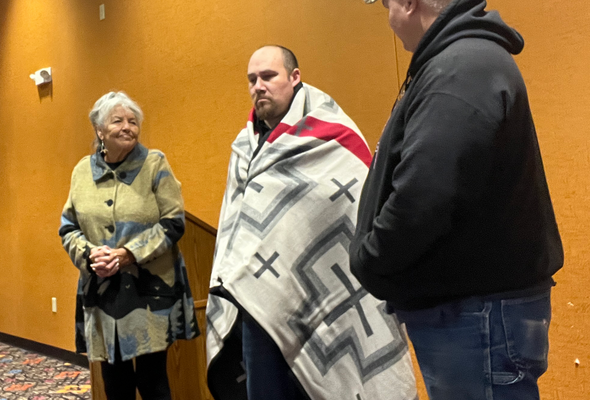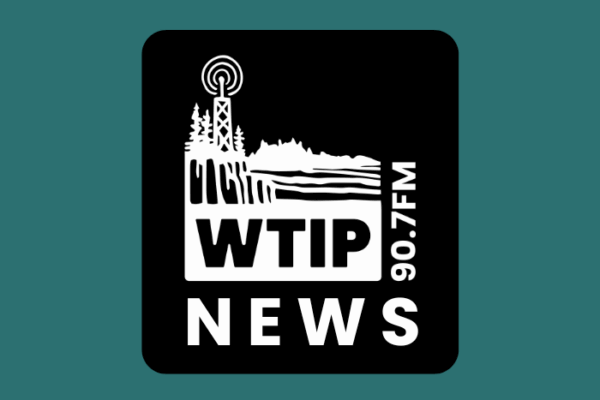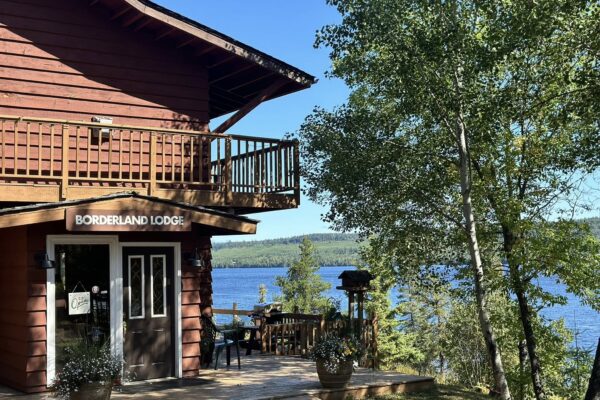Interior Department’s assistant secretary for Indian affairs visits Grand Portage, Lake Superior region
Assistant Secretary of the Interior for Indian Affairs Bryan Newland was in northern Minnesota in late August to hear from tribal leaders about a collaborative land stewardship that is now a successful model used across the nation.
While near Lake Superior, Assistant Secretary Newland met with leaders from the Grand Portage Band of Lake Superior Chippewa and visited the Grant Portage National Monument to learn about the band’s co-management agreement with National Park Service. Signed in 1999, the agreement is oldest in the country between a tribe and the federal government, in this case, the National Park Service.
In a related story, Secretary of the Interior Deb Haaland and Newland, a citizen of the Bay Mills Indian Community (Ojibwe) in Michigan, were both in Montana earlier this summer at the Bison Range on the Flathead Reservation north of Missoula. The Confederated Salish and Kootenai Tribes took over management control of the Bison Range in 2021. Prior to that, the federal government managed the Bison Range for more than a century. Both in Cook County and in Montana, there were many parallels drawn between the Bison Range and the existing management agreement in Grand Portage.
While in Minnesota, Newland talked about efforts to strengthen Tribal co-stewardship of public lands and waters including the “Tribal Homelands Initiative,” part of a federal plan between the U.S. Departments of the Interior and Agriculture aiming to improve federal stewardship of public lands, waters and wildlife by strengthening the role of Tribal communities in federal land management.
Locally, the U.S. Forest Service worked closely with the Grand Portage Band regarding a proposed expansion of Lutsen Mountains, a ski resort here on the North Shore, according to officials from the federal agency. Treaty rights and understanding the rights across the 1854 Ceded Territory have become a critical component of this proposed expansion, according to officials from the Forest Service. During an interview with WTIP’s Joe Friedrichs, Newland recognized the importance of the Forest Service recently hiring a full-time tribal liaison to serve as a facilitator between the Chippewa bands near Lake Superior and the federal government.
Other topics discussed during the Sept. 1 interview include a 2020 letter from the Minnesota Chippewa Tribe regarding a proposed copper-nickel mine near the BWCA, the Grand Portage Conservation Crew, a partnership between the National Monument and the band that involves tribal youth in resource management at Grand Portage National Monument, Grand Portage Reservation and Isle Royale National Park.
In other news, Newland and Haaland were in Michigan in August, making their second on what’s being called the ‘Road to Healing Tour.’ These sessions are meant to provide Native American survivors of the federal boarding school system and their descendants an opportunity to shed light on their experiences, Newland said. More than 30 tribal nations from Michigan, Minnesota, Wisconsin, and Iowa were invited to participate in this listening session.
Listen to the full interview in the audio shared below.














